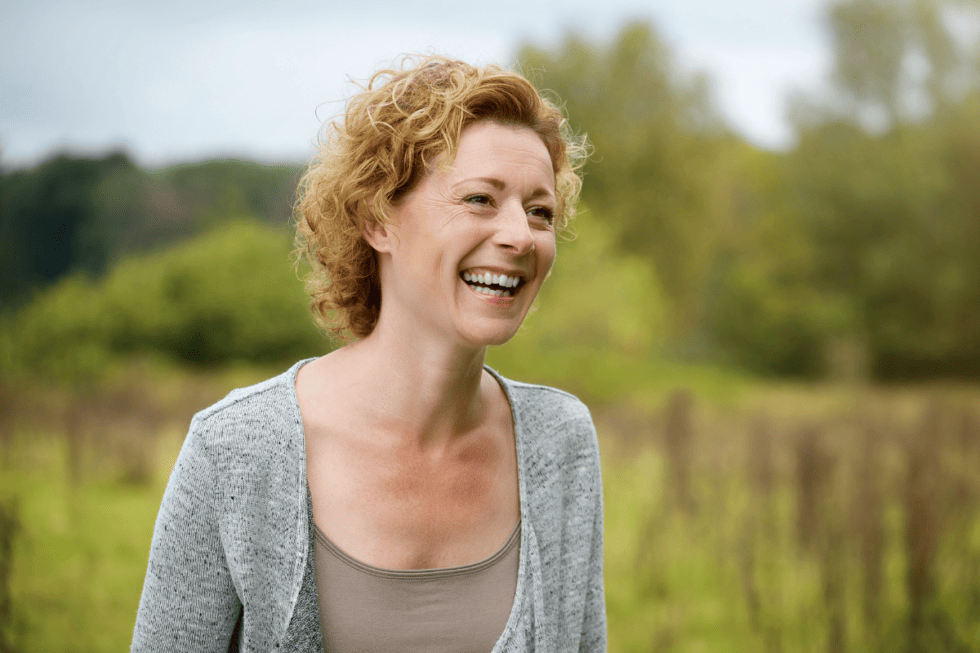
BeSerene Review: Nervines and Adaptogens for Building Resiliency with MCAS
Did you know that stress can be a big trigger for people with Mast Cell Activation Syndrome (MCAS) or Histamine Intolerance? That’s part of why building resiliency is so important.
What comes to mind when you hear the word resilience? Perseverance? Mindset?
That’s part of it.
But there’s also a biological aspect to it. How your brain and nervous system work plays a big role in your resilience.
When you learn how to support those systems better, you can experience fewer flares and bounce back quicker from stressful situations.
Keep reading to learn more about what resiliency is. And some of the top ways you can build your resilience.
In this BeSerene review you’ll read more about:
- What resiliency is
- Why resiliency is important in chronic illness
- What you can do to build your resiliency
- Our top nervous system resiliency support supplements
- Adaptogens and nervines
Let’s jump right in!
Resiliency and the Nervous System
It’s important you know that this blog post is for informational and educational purposes. It’s not meant to treat any health condition or to be prescriptive for anyone. If you have any medical condition, it is critical you work under the care and guidance of a licensed medical provider.
The definition of resiliency is “the capacity to withstand or to recover quickly from difficulties; toughness.”
But when we talk about resiliency in terms of our psychology and biology, there’s more to it.
Resilience is the capacity to adaptively overcome stress and adversity while maintaining normal mind and body functioning.
Resiliency doesn’t mean you don’t feel stress. It’s your ability to bounce back from a stress response.
In other words, if your resilience isn’t strong, stress may result in:
- Experiencing pain or illness to a greater and longer degree
- Shifts in your psychology such as development of mental health conditions
Someone who is highly resilient bounces back much quicker, with less likelihood of physical and mental adverse effects.
Some people are naturally resilient. But no matter where you are on that scale, if you’d like to have more resiliency, it’s a skill you can continue to develop.
Let’s take a quick look at what that means.
Resiliency Doesn’t Mean You Don’t Experience Stress
Stress is an inevitable part of life. Of course you will feel stress when challenging things happen.
But when you work on your resilience, it takes less of a toll and less time to recover with stressful events.
It gives you a buffer. So, when you face stress there is less anxiety. And less mast cell reactivity. You can face the stress with more resilience and less flaring.
We’ll tell you more about what you can do to build resilience in a bit.
First, let’s talk about what may influence your resiliency levels.
What Influences Your Natural Resiliency
Research shows that resilience can be affected by different factors, like these:
- Genetic – genes and genetic variants have been linked to resilience
- Epigenetic – genetic expression influenced by:
- Environmental pollutants (like mold and mycotoxins)
- Stress
- Diet
- Physical Activity
- Developmental – severe adverse events in childhood
- Psychological – cognition processes, personality traits, and coping mechanisms
- Neurochemical - chemicals in the brain
- Other lifestyle choices such as tobacco and alcohol use
These are a few factors that contribute to your level of resilience.
Fortunately, you can improve your resilience! And that can be especially important when you are living with chronic illness.
Resiliency and Chronic Illness
With MCAS, you may tolerate only a handful of foods.
With chronic illness you may have medical stress. Or experience unbearable pain.
You may have trauma related stress.
And most people experience daily life stress.
Resiliency can help keep you going through this.
Good resilience may even encourage and accelerate healing. And it can provide a sense of well-being despite chronic illness.
Resilience alone isn’t going to make all your problems go away. We’re definitely not suggesting that.
You’ll still need to look at your root causes. These are the underlying factors contributing to your illnesses, including Mast Cell Activation Syndrome and Histamine Intolerance, like Mold Toxicity.
But boosting your resilience can better equip you for healing as you tackle your root causes.
Resilience experts believe that strengthening your resilience can help improve your health and ease illnesses in some instances.
So, how do you build your resilience?
That’s up next.
Ways to Build Resiliency
We’ll look at 2 different ways to build resiliency.
First, you’ll read about increasing resiliency by supporting your nervous system.
Then you’ll read about building resiliency with nervines and adaptogens.
In both categories, we’ll share some new findings with you!
Let’s start by looking at some free nervous system supports that you can get started with. And learn more about why they help build resiliency.
Supporting the Nervous System
Research has shown that stressful life events, trauma, and chronic adversity can greatly impact brain function and structure.
And stress can keep your sympathetic nervous system engaged. That’s your fight or flight state.
The human brain works in such a way that you don’t always enter recovery mode once a threat has passed.
You may experience worry, stress, and anxiety well after an initial trigger.
So, it’s possible to get stuck in the sympathetic state. And this is not where you want to spend the majority of your time.
Did you know that this fight or flight state places big demands on your body?
By calming your nervous system, you’re allowing yourself the best chance to bounce back, both mentally and physically.
But you need to be in the parasympathetic state of rest, heal, and digest to do this.
You can see why this is extra important if you have chronic illness.
Related Post: How to Balance Your Nervous System with Mast Cell Activation Syndrome
Working on your nervous system and engaging your parasympathetic nervous system is one way to build resiliency.
Here are some examples of free modalities you can use to help strengthen your nervous system and build resilience.
Meditation
At its core, meditation is simply a practice that helps you improve your attention and awareness to help you calm your mind and body.
Multiple studies have found that the brain structure of someone who regularly meditates often shows denser brain tissue as well as enlarged areas of the brain. (In a good way!)
This seems to indicate that the neurons in those areas have more connections to each other. And the connections are stronger. Neurons are cells that signal all kinds of different jobs and responses in your body.
And in these studies, the brain structure that shows denser brain tissue and enlargement are usually areas that control your:
- Senses
- Ability to think and concentrate
- Ability to process emotions
That means people who meditate regularly have healthier brains. And they have a stronger ability to process emotions like fear, anger, and grief. In other words, they have greater resilience.
Some people do much better with guided meditation than silent meditation.
One of our favorite quotes by Thich Nhat Hanh, when asked about the best form of meditation, is his answer:
The best meditation is the one you do.
So, pick something that benefits you! And for some people, mind-body practices are even easier. Let’s look at a couple of examples of that next.
Mind-Body Practices
Mind-body practices like Qigong or yoga use gentle movement and mindful breathing to help you get into parasympathetic mode.
Your parasympathetic state is the state of rest, heal, and digest.
Qigong is a great way to get started with mind-body work. It’s free-flowing and uses gentle movements. It may be a better starting point than yoga for those who have EDS or hypermobility.
Additionally, both Qigong and yoga have the benefit of being less intense forms of exercise.
This means they won’t increase your stress hormone levels, like cortisol. This is important if your cortisol levels are already out of balance due to stress!
Again, it’s all about calming the nervous system. One of our favorite practices is Resonant Breathing.
TIP: If you have Mast Cell Activation Syndrome, you might want to skip hot yoga! Did you know that heat can be a mast cell trigger?
Deep Sleep
Sleep is critical for your body to heal.
When you sleep, your normal body functions slow down. All the energy you’d be expending while awake becomes available for repair.
There is no substitute for restorative sleep.
Psychologists report that sleeplessness can:
- Affect regulation of emotions
- Interfere with memory and learning
- Weaken the pain threshold
- Increase feelings of hopelessness or loneliness
And they say that getting sufficient sleep is closely linked with positive mental health and resilience.
Make Social Connections
Numerous studies show social support is essential for maintaining physical and mental health.
Remember how you read that resilience can be affected by genetics and your environment?
Social support may moderate genetic and environmental vulnerabilities.
A healthy support system is thought to bolster resilience to stress in several ways.
A support system may decrease a person’s likelihood of engaging in risky or unhealthy behaviors.
Related Post: Tips for Thriving at Social Gatherings
But a support system may influence different brain pathways as well!
In human studies, those who didn’t have good social support showed heightened stress reactivity. This shows up as elevated heart rate, increased blood pressure, changes in heart reactivity, and elevated responses from the nervous system and endocrine system (hormone-related).
So, don’t hesitate to reach out to your circle of friends and family.
And if you are feeling like you are all alone, we invite you to check out the Hugs With Our Words Project. You can share your own experiences and read some words of encouragement.
You’ve just read about some practices to build your resilience that you can get started with right away.
But there’s another way you can build resilience, too. You can support yourself with nervines and adaptogens.
Keep reading to learn more.
BeSerene Review: Nervines and Adaptogens
Nervines and adaptogens are both herbal in nature. And they both help to support your nervous system.
They can both be helpful in building and supporting resiliency.
So, what are nervines and adaptogens? Let’s look at nervines first.
What Are Nervines?
Nervines are plants that have action on the nervous system. These are categorized as either stimulating or calming nervines.
You are probably already familiar with some calming nervines like lavender, chamomile, and passionflower.
Nervines support the central nervous system by reducing overactive stress responses. They help engage your parasympathetic nervous system.
These herbs can help relieve:
- Muscle tension
- Ruminating thoughts
- Sleep issues
- Worry and anxiety
Some nervines also support the digestive system.
That’s great news for those of us with Mast Cell Activation Syndrome.
A huge percentage of your immune system and your nervous system is in your gut. And as you know, mast cells are a big part of your immune system’s response.
So, healthy digestion and a healthy gut can go a long way to supporting your immune system and your mast cells.
And calming the nervous system builds resiliency.
What Are Adaptogens?
Adaptogens are also herbs that help manage stress and stress responses.
Herbs in this group have been shown to have modulating and balancing effects on multiple systems of the body—immune system, nervous system, and endocrine system.
In other words, adaptogens level things out.
For example, if cortisol is too high, adaptogens can bring it down. But if cortisol is too low, adaptogens can help bring it up to a healthy level.
This goes for things like other stress chemicals, neurotransmitters, and hormones, too.
And this can help build resiliency.
People take adaptogens to help:
- Improve focus
- Boost mood
- Help immune function
- Alleviate anxiety
- Reduce fatigue
- Increase energy
- Cope with trauma
- Stress relief
To be considered an adaptogen, the herb must:
- Be safe, non-toxic, and non-habit-forming in normal doses
- Help the body cope with stress
- Assist the body in returning to balance by increasing or decreasing chemical reactions
Combining adaptogens and nervines can be more effective than just one or the other in building resiliency, calming mast cells, and supporting the body.
And some people prefer this natural way of healthcare when it comes to anxiety. Some prescription drugs for dealing with stress and anxiety have been shown to be addictive or have unpleasant side effects.
We work with so many people with complex cases in the practice and many of our team have complex cases of MCAS, too. So, we are always looking for ways to support wellness.
When it comes to resiliency, we’ve been using a product called BeSerene™. It combines adaptogens and nervines.
And we love it!
Keep reading to learn more.
Top Nervous System Resiliency Supplements: BeSerene Review
We want to tell you about this product we’ve been using called BeSerene™. It comes in the form of a cream or oral supplement.
Generally speaking, though, it’s been well-tolerated by people with MCAS and Histamine Intolerance.
Both are combination products (they have multiple ingredients). So, we’ve also got a list of single ingredient supplements to consider, too. You might need to start with a single ingredient product if you are still highly sensitive.
(If you have Salicylate Intolerance, keep reading for alternative options, too.)
With any new supplement, be sure to talk with your healthcare provider who knows your full health history with any questions or concerns, including potential drug interactions.
We can tell you that you shouldn’t use BeSerene™ if you are pregnant or breastfeeding. You also shouldn’t use it if you are taking prescription lithium.
If you like learning through video, be sure to check out this Live show with Steven Write from Healthy Gut.
BeSerene™ Cream
Let’s start by looking at the BeSerene™ Instant Relief Cream.
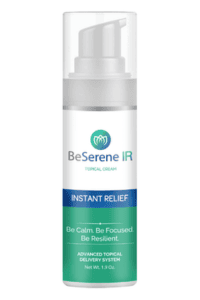
Topicals are sometimes better tolerated for those who are sensitive, so this may be where you need to start if you are ready for a combo product.
BeSerene™ is made up of the following gentle but effective adaptogens and nervines.
Mulungu
Mulungu is a tree that is native to Brazilian rainforests. The bark and roots are widely used for herbal medicinal purposes, including anxiety relief.
Mulungu extract is one of the adaptogens you’ll find in both BeSerene™ products.
GABA
In the brain, gamma aminobutyric acid (GABA) helps calm you when you are over-stimulated. It helps balance the feel-good chemicals like serotonin and dopamine.
GABA is a nervine.
GABA has been reported to help with:
- Relaxation
- Reduced pain perception
- Improved sleep
- Gut issues
L-Theanine
L-Theanine is an amino acid that has been shown to affect brain function by:
- Reducing stress
- Improving mood
- Helping with sleep
- Improving cognition and focus
L-Theanine is a nervine.
GABA and L-Theanine are well absorbed through the skin. That makes the BeSerene™ cream a good option for getting the benefits of both of these nervines.
Albizia Supreme
Albizia is a flowering tree native to parts of Asia.
Its flowers and bark have been used as a nervine to:
- Support mood
- Relieve stress and anxiety
It also offers:
- Antimicrobial properties
- Antioxidant effects
- Anti-inflammatory effects
- Liver protective effects
- Lipid-lowering effect
California Poppy
This nervine is known for its calming properties and sleep support.
The California poppy contains plant compounds which act on GABA receptors. GABA receptors respond to the neurotransmitter GABA, which is one of the main neurotransmitters responsible for sleep regulation.
BeSerene™ has both California poppy and GABA which work independently, but together work even better to support the benefits each offers.
Now, when people see “poppy” a frequently asked question is: Is it an opiate?
California poppy does not contain opiates.
It’s not related to the opium poppy at all and doesn’t contain any of the same compounds.
BeSerene Review: How to Use BeSerene Instant Relief Cream
When you are first starting with BeSerene™ Instant Relief (IR) Cream, you should start slowly.
Start BeSerene™ Instant Relief Cream by only using ½ a pump of the cream. You’ll rub this into your temples or wrists at your pulse points.
If you are highly sensitive, you may want to start with just a tiny drop.
Do not try the products for the first time before driving or operating other equipment.
Additionally, as you increase your dosage, you’ll want to take the same precautions.
Remember, everyone is different. Your ideal dosage will not be the same as others. That’s why we always want you to start slow and increase gradually over time.
You can work up to the suggested use, which is 1 to 2 pumps every few hours as needed.
Because this can be used to promote more restful sleep, many people use this before bedtime.
However, you can use it anytime, day or night.
Many people report feeling the effects within 10 minutes!
So, it may be helpful to use it preemptively if you know you’ll be facing a stressful situation.
Or, because it works so quickly, you can use it as relief if you find yourself in an unexpected stressful situation. It is really soothing.

>>> Click here to order BeSerene Instant Relief Cream
And you can use code MASTCELL360 at checkout for 15% off your entire first order at Healthy Gut!
You can use BeSerene™ Instant Relief Cream on its own. Or you can get even more benefits by combining it with BeSerene Daily, the oral supplement.
BeSerene Review: How to Use BeSerene Daily Oral Supplement
Even though the two products have the same name, they don’t contain all the same ingredients.
Both contain the adaptogen Mulungu.
But other than that, the capsules have different adaptogens and nervines. That’s why using the cream and capsules together can provide even more benefits.
Taken daily, the BeSerene™ Daily Oral Supplement can help to:
- Reduce anxiety and stress
- Improve sleep quality
- Increase health
- Increase energy and vitality
BeSerene™ works by activating GABA receptors, stimulating parasympathetic neurotransmitters, and supporting parasympathetic tone.
BeSerene™ Daily has the following adaptogens and nervines.
Holy Basil (Tulsi)
Holy basil (tulsi) is one of our favorite herbs.
Tulsi is the star in one of our favorite low histamine tea recipes!
It acts as a nervine, to help with psychological stress.
Additionally, it has been shown to have these properties:
- Antioxidant
- Antimicrobial
- Antihistamine
Related Article: The Best Antihistamine for Histamine Intolerance and Mast Cell Activation Syndrome
Alongside Mulungu, it promotes a deep sense of calm.
Schisandra
Schisandra is a vine with red berries.
It’s also sometimes called the five-flavor fruit.
It’s a naturally occurring plant adaptogen with antioxidant properties.
Data has shown that plant adaptogens, such as those occurring in schisandra may have benefits for:
- Chronic fatigue
- Cognitive impairment
- Immune protection
- Reduced levels of adrenal stress hormones
- Liver protection
- Insomnia
Shatavari
Shatavari is a member of the asparagus family. It’s an adaptogenic herb.
It’s been used in Ayurvedic medicine for years.
Like other adaptogens, shatavari may help with physical and mental stress.
It’s also been shown to help in these ways:
- Anti-inflammatory properties
- Anti-depressant properties
- Boost the immune system
Rehmannia
Rehmannia is a flowering plant with adaptogenic properties.
It has been shown to have the following benefits:
- Antioxidant
- Anti-inflammatory
- Neuroprotective
It’s been suggested that rehmannia can reduce your body’s stress reaction BEFORE stress, so when something goes wrong, you’ll be able to stay calmer.
You can see that the BeSerene™ Daily supplement has a lot of great herbs to help support your brain and nervous system, and build resilience. And they offer a lot of other benefits that may help with mast cell reactions, too.
Anything that has anti-inflammatory properties can help calm mast cells. Mast cells release histamine and other inflammatory mediators.
So, if a product can help with your resilience and mast cell reactions, that’s a double win!
And if you have Oxalate Intolerance, you’ll be happy to hear that we sponsored oxalate testing on this product, and it came back low oxalate at 2 capsules.
How to Use BeSerene™ Daily
Most people who use BeSerene™ Daily feel its effects in about 45 minutes.
However, our goal isn’t just immediate relief. Remember, we want to build resilience. For this, the best results occur when it’s used for 60 to 90 days in a row.
If you are very sensitive, you should start slowly. You can open the capsule and start with just a sprinkle. You can slowly build up to 1 capsule per day, as tolerated.
If needed, most people are able to work up to 2 capsules a day.
And people who tolerate supplements can take up to 2 capsules every 3 hours during times of high stress. But most people don’t need that much.
And remember, resiliency is about bouncing back from stress.
You can use BeSerene™ to help rewire the nervous system and brain to be more resilient.
Over time, it will downshift your body to a more natural, non-stressed-out baseline state.
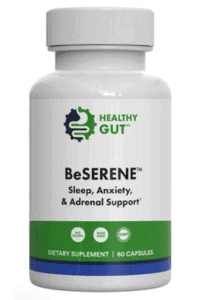
>>> Use this link to order BeSerene™ Capsules
Don’t forget to use code MASTCELL360 for 15% off your entire first order.
And the great thing we love about all Healthy Gut products is that they offer a 60-day money back guarantee. If it isn’t working for you, just contact their customer support for a refund.
We love that you can try this product to see if it will work for you.
Finally, let’s look at some single-ingredient options if you aren’t ready for a combo product yet.
Nervous System Support Supplements
If you are still very sensitive, you may need to start with just 1 ingredient at a time.
You can always try the combo products once you are further stabilized with your health and able to handle more.
You read some product information about some of these supplements earlier, so we’ll just touch on these lightly.
They are all either nervines or adaptogens or in some cases both. That means you’ll get the same benefits you read about earlier with nervines and adaptogens.
- Passion flower tincture – nervine, adaptogen, mast cell stabilizing
- Rhodiola – nervine, adaptogen, mast cell stabilizing
- GABA – low salicylate, nervine
- L-theanine – low salicylate, nervine
- Liposomal Zen (can be used topically) – low salicylate, contains both GABA and L-theanine, nervine
You can register for a free Fullscript account with this link anytime. It never costs you more, and your Fullscript purchase helps support Mast Cell 360 free online resources.
Link url: https://us.fullscript.com/welcome/mastcell360
When you start with any of these, start with just one at a time. If you start with several, it defeats the purpose of starting with single ingredients. You won’t know what you are reacting to if you do have a reaction.
And just like we talked about with BeSerene™, you’ll want to start any of these single ingredient supplements low and slow, too.
In the Mast Cell 360 practice, we say “drops or sprinkles.” You can put just a little bit into your water to start. Slowly build up from there as tolerated.
And as always, be sure to talk with your healthcare provider who knows your full history and risk factors before starting anything new.
Resiliency is so important for recovering your health.
Whether you choose to support yourself with some of the nervous system practices you learned about or some of the nervines and adaptogens, we hope you’ll get more resilient every day!
Wishing you well!
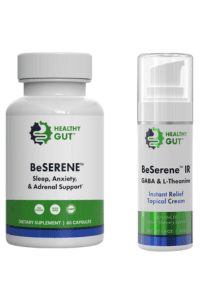
>>> Click here to shop for BeSerene Capsules, BeSerene IR Cream, or as a Bundle to save even more!
And use code MASTCELL360 to save 15% off your entire first order at Healthy Gut
We hope this BeSerene review was helpful! What do you do to build resiliency?
More Resources to Help Build Resilience and Lower Stress
- Resonant Breathing Benefits
- How to Balance Your Nervous System
- How to Heal from Trauma with MCAS
- The Best Magnesium for Histamine Intolerance and Mast Cell Activation Syndrome
- Cortisol Imbalance and How to Support Your Adrenals with Mast Cell Activation Syndrome
Some links in this website are affiliate links, which means Mast Cell 360 may make a very small commission if you purchase through the link. It never costs you any more to purchase through the links, and we try to find the best deals we can. We only recommend products that we love and use personally or use in the Mast Cell 360 practice. Any commissions help support the newsletter, website, and ongoing research so Mast Cell 360 can continue to offer you free tips, recipes, and info. Thank you for your support!
References
Abascal, K., & Yarnell, E. (2004). Nervine Herbs for Treating Anxiety. Alternative and Complementary Therapies, 10(6), 309–315. https://doi.org/10.1089/act.2004.10.309
Alegría-Torres, J. A., Baccarelli, A., & Bollati, V. (2011). Epigenetics and lifestyle. Epigenomics, 3(3), 267–277. https://doi.org/10.2217/epi.11.22
Alok, S., et al. (2013). Plant profile, phytochemistry and pharmacology of Asparagus racemosus (Shatavari): A review. Asian Pacific Journal of Tropical Disease, 3(3), 242–251. https://doi.org/10.1016/S2222-1808(13)60049-3
Auteri, M., Zizzo, M. G., & Serio, R. (2015). GABA and GABA receptors in the gastrointestinal tract: from motility to inflammation. Pharmacological Research, 93, 11–21. https://doi.org/10.1016/j.phrs.2014.12.001
Baba, Y., et al. (2021). Effects of l-Theanine on Cognitive Function in Middle-Aged and Older Subjects: A Randomized Placebo-Controlled Study. Journal of medicinal food, 24(4), 333–341. https://doi.org/10.1089/jmf.2020.4803
Babić, R., et al. (2020). Resilience in Health and Illness. Psychiatria Danubina, 32(Suppl 2), 226–232.
Chatburn, A., Coussens, S., & Kohler, M. J. (2013). Resiliency as a mediator of the impact of sleep on child and adolescent behavior. Nature and science of sleep, 6, 1–9. https://doi.org/10.2147/NSS.S54913
Cohen M. M. (2014). Tulsi – Ocimum sanctum: A herb for all reasons. Journal of Ayurveda and integrative medicine, 5(4), 251–259. https://doi.org/10.4103/0975
Gustafson C. (2016). Ellen Kamhi, phd, rn: Herbal Support for the HPA Axis. Integrative medicine (Encinitas, Calif.), 15(6), 42–46.
Jamshidi, N., & Cohen, M. M. (2017). The Clinical Efficacy and Safety of Tulsi in Humans: A Systematic Review of the Literature. Evidence-based complementary and alternative medicine : eCAM, 2017, 9217567. https://doi.org/10.1155/2017/9217567
Kassel, G. (2019, December 11). The Link Between Cortisol and Exercise. Shape. https://www.shape.com/fitness/tips/high-cortisol-levels-exercise-stress
Kleij, H. P., & Bienenstock, J. (2005). Significance of Conversation between Mast Cells and Nerves. Allergy, asthma, and clinical immunology : official journal of the Canadian Society of Allergy and Clinical Immunology, 1(2), 65–80. https://doi.org/10.1186/1710-1492-1-2-65
Liao LY, et al. A preliminary review of studies on adaptogens: comparison of their bioactivity in TCM with that of ginseng-like herbs used worldwide. Chin Med. 2018 Nov 16;13:57. doi: 10.1186/s13020-018-0214-9. PMID: 30479654; PMCID: PMC6240259.
Meditation: What It Is, Benefits & Types. (n.d.). Cleveland Clinic. https://my.clevelandclinic.org/health/articles/17906-meditation
Nestler, E. J., & Waxman, S. G. (2020). Resilience to Stress and Resilience to Pain: Lessons from Molecular Neurobiology and Genetics. Trends in molecular medicine, 26(10), 924–935. https://doi.org/10.1016/j.molmed.2020.03.007
Ong, A. D., Zautra, A. J., & Reid, M. C. (2010). Psychological resilience predicts decreases in pain catastrophizing through positive emotions. Psychology and aging, 25(3), 516–523. https://doi.org/10.1037/a0019384
Ozbay, F., et al. (2007). Social support and resilience to stress: from neurobiology to clinical practice. Psychiatry (Edgmont (Pa. : Township)), 4(5), 35–40.
Panossian, A., et al. (2007). The adaptogens rhodiola and schizandra modify the response to immobilization stress in rabbits by suppressing the increase of phosphorylated stress-activated protein kinase, nitric oxide and cortisol. Drug target insights, 2, 39–54.
Resilience: Build skills to endure hardship. (2022, July 14). Mayo Clinic. https://www.mayoclinic.org/tests-procedures/resilience-training/in-depth/resilience/art-20046311
Seppälä, E., Ph. D. (2021, March 31). Stress Resilience: It’s a Real Thing and You Can Develop It. Psychology Today. https://www.psychologytoday.com/us/blog/feeling-it/202103/stress-resilience-its-real-thing-and-you-can-develop-it
Singh, S., Taneja, M., & Majumdar, D. K. (2007). Biological activities of Ocimum sanctum L. fixed oil–an overview. Indian journal of experimental biology, 45(5), 403–412.
Thompson, J., Ph. D. (2020, April 6). Sleep: Practical Tips to Increase Resilience. Psychology Today. https://www.psychologytoday.com/us/blog/beyond-words/202004/sleep-practical-tips-increase-resilience
What are Adaptogens & Types. (n.d.). Cleveland Clinic. https://my.clevelandclinic.org/health/drugs/22361-adaptogens
Wu, G., et al. (2013). Understanding resilience. Frontiers in behavioral neuroscience, 7, 10. https://doi.org/10.3389/fnbeh.2013.00010
Yan, T., et al. (2016b). Schisandra chinensis produces the antidepressant-like effects in repeated corticosterone-induced mice via the BDNF/TrkB/CREB signaling pathway. Psychiatry Research-Neuroimaging, 243, 135–142. https://doi.org/10.1016/j.psychres.2016.06.037

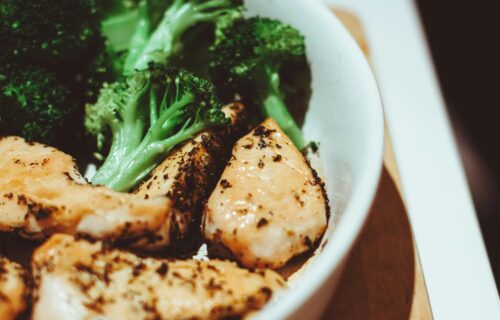
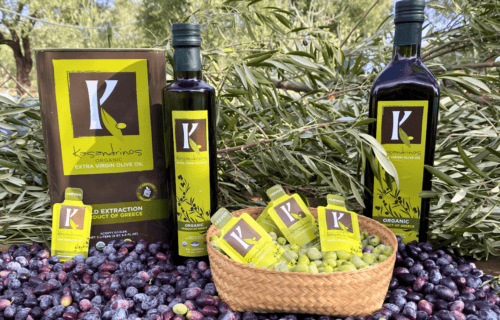
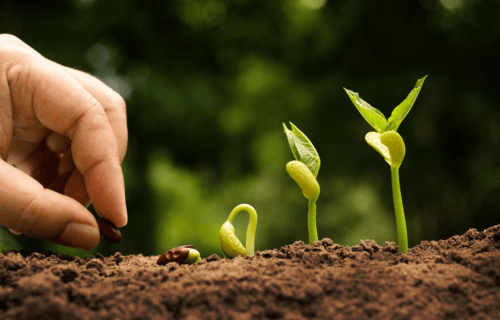
Add A Comment